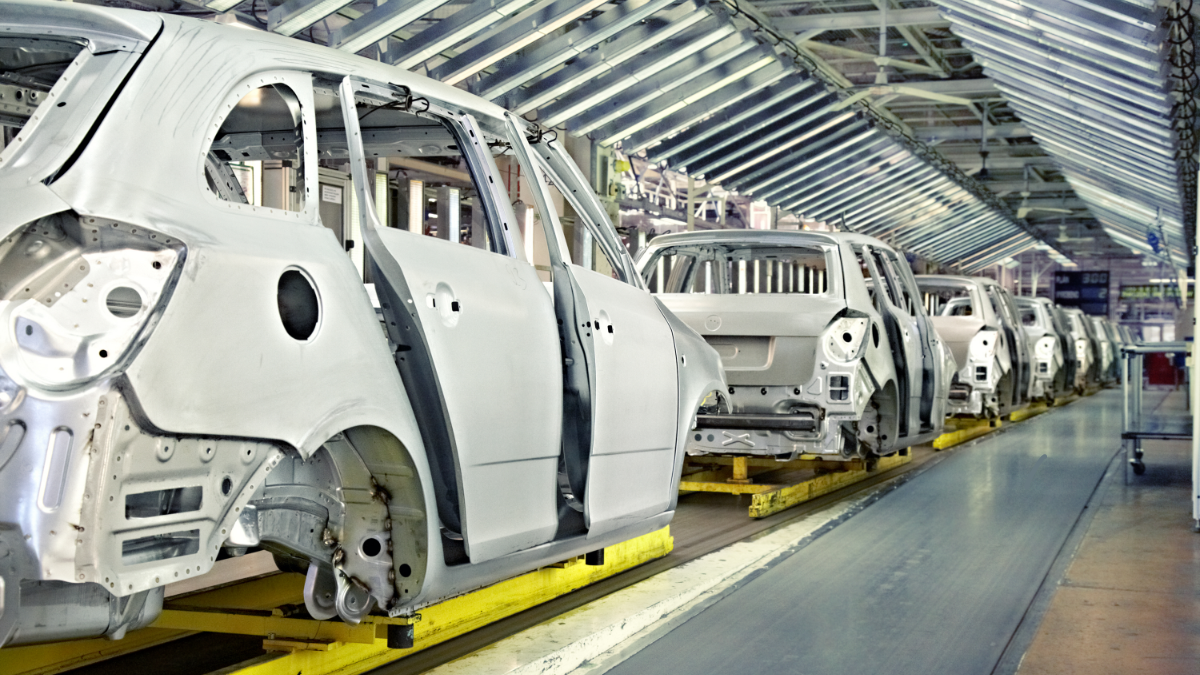United States. President Donald Trump announced on Wednesday, March 26, the imposition of a 25% tariff on all cars imported into the United States.
This measure represents a significant escalation in the global trade war. The tariffs, which will take effect on April 3 at 12:01 a.m. ET, are aimed at strengthening U.S. auto manufacturing. For decades, a free trade agreement allowed Canada, Mexico and the United States to function as a single tariff-free market. However, Trump intends to modify that dynamic.
"Frankly, the friend has been many times worse than the enemy. And what we're going to do is a 25% tariff on all cars that aren't made in the United States," the president said before signing the proclamation in the Oval Office. "If they're made in the United States, there's no tariff."
The measure will also affect automotive parts, including engines and transmissions, whose tariffs will take effect before May 3, according to the document signed by Trump. However, auto parts from Canada and Mexico that comply with the United States-Mexico-Canada Agreement (USMCA) will be exempt until Customs and Border Protection implements a system to tax those that are not of U.S. origin.
Trump said he has held talks with the three U.S. auto giants: Stellantis, Ford and General Motors. "If they have factories here, they're delighted," he said. "If they don't have them, they're going to have to get up and running and build them."
Following the announcement, General Motors (GM) shares fell more than 7% in after-hours trading, while Ford (F) and Stellantis (STLA), maker of Jeep, Ram, Chrysler and Dodge, lost more than 4%.
The impact was also felt in the European and Asian markets. Volkswagen shares fell 1.7% and BMW fell 1.8%, while in Japan, Toyota lost 2% and Honda lost 2.5%.
Japanese Prime Minister Shigeru Ishiba said "all options" are on the table in response to the tariffs, while the South Korean government called an emergency meeting with automakers. "The U.S. tariffs will pose significant challenges for our companies, which export a large volume to the U.S. market," South Korean Commerce Minister Ahn Duk-geun warned.
From Canada, Prime Minister Mark Carney called the tariffs "a direct attack," in violation of the USMCA, and announced that his government is considering retaliation. "We will defend our workers, our companies and our country, and we will do it together," he declared.
Industry experts warn that the tariffs could make cars thousands of dollars more expensive. According to the Anderson Economic Group, the cost of production of vehicles assembled in the U.S. will increase between $3,500 and $12,000 per unit.
United Auto Workers President Shawn Fain backed the measure. "We applaud the Trump administration for stepping up to end the free-trade disaster that has devastated working communities for decades," he said in a statement.
Meanwhile, the European Union and other trading partners are considering possible retaliation. European Commission President Ursula von der Leyen condemned the tariffs and said the bloc would evaluate response measures in the coming days. In Germany, the Association of the Automotive Industry called the decision "a disastrous signal for free and rules-based trade."
The tariffs will not only affect car imports, but could impact the production of auto parts in the U.S. In 2024, the country exported $35.8 billion in automotive parts to Mexico and $28.4 billion to Canada. If production in those countries is reduced, the U.S. factories that supply them could also be affected.
In 2024, Mexico assembled 4 million vehicles, of which 2.5 million (61%) were shipped to the U.S. In Canada, of 1.3 million cars manufactured, 1.1 million (86%) were exported to the U.S.
Given the possibility of trade retaliation, the impact on the U.S. auto industry could be greater than expected. "It's a very strange and counterproductive set of tariffs," said analyst Fareed Zakaria.
With uncertainty mounting, next week Trump could announce new tariffs against his major trading partners, putting even more pressure on the global industry.















